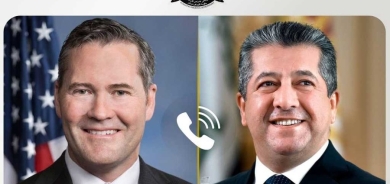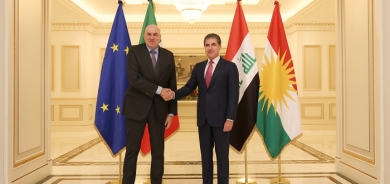Michael Johanston to Gulan Magazine: Politics without governance is really ineffective and chaotic, and governance without politics is undemocratic
October 27, 2011
Exclusive Interviews

The Professor Michael Johanston is a professor of Political Sciences in Charl Dana Center and the Head of The Sociology Department in Colgate University, and is the founder of (Corruption and Reform) Newspaper, and also was The Editor in Chief of the Newspaper during the years 1985 – to 1996. The Professor Johanston is the writer of democratic writings within the political parties regarding to the theoretical and practical aspects, and he is also the author of many books about governance and democracy. Regarding to our topic about maintaining the balance amongst democratic elements, the Professor Johanston expressed his views to Gulan Magazine as the following:“In a society in which people are not only free to act to defend their interests but also seek the political process though in order to defend their own interests. I think one mistake we often make in democracy building is we assume that everybody should be motivated by idealistic and civic concerns, where in fact there need to be real incentives to sustain people for participation.
Regarding to the political parties, parties need to be based on real interests out there in the society, and to derive their interests to the grassroots upward from ground-up as much as possible. And once again; we ask the political parties to be democracy building entities. There is a very good political science argument which says that the mistake we make is to treat the political parties almost as public utilities and suppose to satisfy some public function, when in fact they work best when they articulate private interests.
I think one of the most important things is to build trust by helping to deliver the basic services to the people on a fair and effective basis, personal safety, education, clean water, things that are not terribly exciting but really are essential to have people lives improved, and if you do that on fair basis overtime you can build trust and escape the notion of “well; this political party just belong to that ethnic group or is just a personal tool of this powerful man”, people then may begin think that the political parties actually speak for segments of the population, that process takes a long time though.
Yes; the democratic elements in transitional stages need to cooperate in the sense of complying with the rules but they also need to contest real differences and real issues so people believe they actually have multiple choice. The latter part of the question is about the differences between good governance and democracy; I think actually that there is not a great deal of differences, but we tend to think of good governance basically as technical and administrative process, and making bureaucracy work and so forth. And indeed many ideas about good governance assume that we should keep political process’s influence out of the governance process, where is I think in the sense we really need to have a closer unity between governance and politics, the politics without governance is really ineffective and chaotic, governance without politics is unaccountable and undemocratic.”
Transcription: Qane’ Kakeiy















